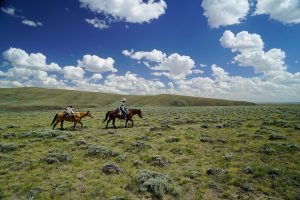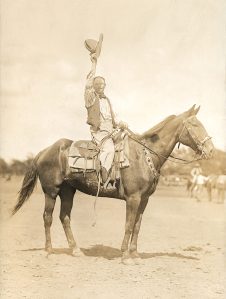Towers of Gold: How One Jewish Immigrant Named Isaias Hellman Created California
by Frances Dinkelspiel, St. Martin’s Press, New York, 2008, $29.95.
In Westerns, bank robbers tend to get a modicum of sympathy whenever the bankers themselves are depicted —generally as robbers in their own right who do it, to paraphrase Woody Guthrie, “with a fountain pen.” The truth behind the image lay in the unregulated capitalism of the United States’ formative years, when bankers often lent money recklessly to people who had no hope of paying their excessive interest rates, leading many to suicide, thus surrendering their assets into the hands of the banker.
That said, there were bankers in those days who through a combination of personal ethics and foresight invested in enterprises that developed the country—including the West—into the prospering nation that charged into the 20th century. Meticulously sifting through and analyzing some 50,000 documents left behind by her great-great-grandfather, Berkeley-based writer Frances Dinkelspiel reconstructed the career of one who ranked among the pivotal figures in the history of her home state. Emigrating to exchange the anti-Jewish discrimination of mid-19th-century Bavaria for the possibilities of Gold Rush California in 1859, Isaias Wolf Hellman settled in Los Angeles, then a small grouping of adobe dwellings still in transition from its origins as a Spanish settlement. Establishing a clothing business with one safe to hold customers’ funds, Hellman made a transition of his own to open the Farmers and Merchants Bank in 1871 and went on to become one of California’s most prominent bankers.
Much of his reputation lay in an extremely conservative attitude toward those to whom he lent money, to the extent that word of Hellman partially financing an enterprise became an endorsement in itself as to its soundness. More important, Hellman genuinely wanted the businesses in which he invested to succeed and often lent a personal hand in promoting their success. In so doing, he helped accelerate Los Angeles’ growth into a major city, as well as California’s transition from a land of Spanish ranchos, gold prospecting and banditry to a national powerhouse of agriculture (including oranges, grapes and wine), industry and commerce. It’s a different kind of pioneering from the norm, but the life and times of Isaias Hellman have their own share of drama and constitute a somewhat overlooked facet of the settling of the West that aficionados should find well worth reading.
Originally published in the June 2009 issue of Wild West. To subscribe, click here.




